
Jim Russell pointed me as the workforce report program that LinkedIn runs. They use their data to show trends in 20 major job markets.
For each market they track, they put together a map of the 10 cities that market gains the most workers from and the ten in loses the most workers too.
These are interesting maps in their own right. They also highlight the extremely parochial nature of the talent flows into Midwestern cities. It’s pretty stark, actually. Here’s a set of comparisons, looking strictly at inflows. There are also outflow and gross migration charts and more information that’s interesting too, but I’ll leave you to dig into that yourself.
Minneapolis vs. Denver vs. Seattle
Let’s take a look at these three roughly peer cities. First, the top ten cities for Minneapolis.
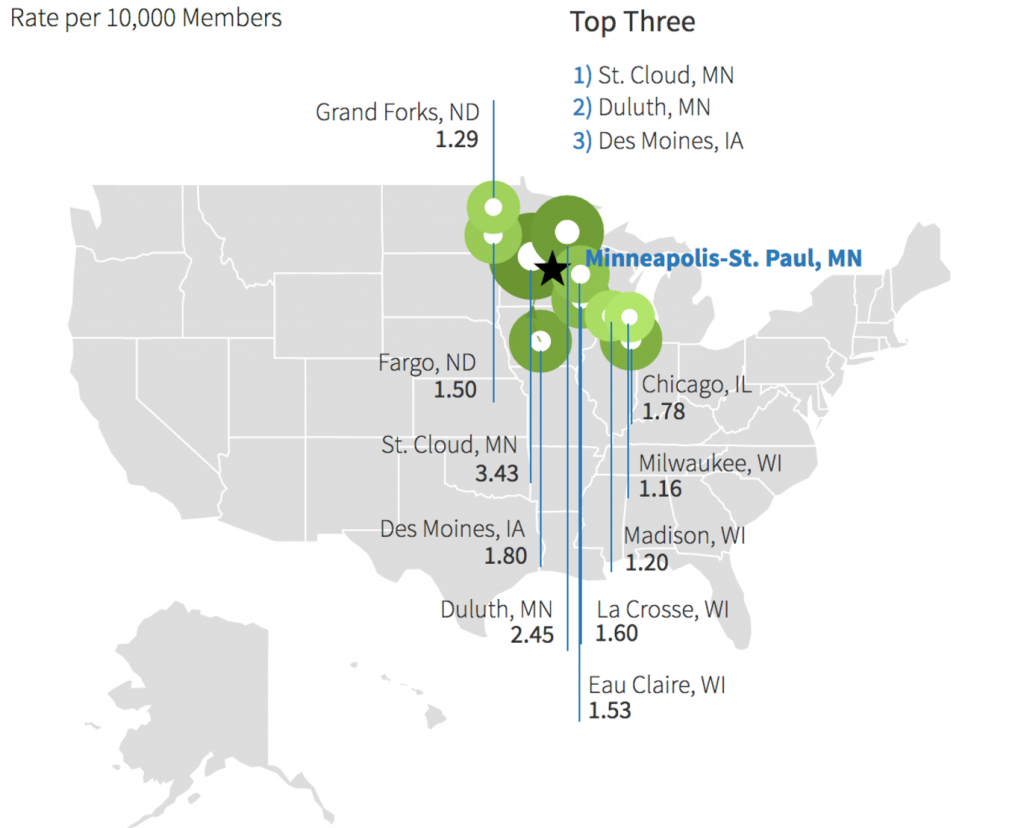
Despite the Twin Cities enjoying a high reputation withing the Midwest region, their draw remains highly regional. Their top draws are from adjacent states plus Chicago.
By contrast, here’s Denver.
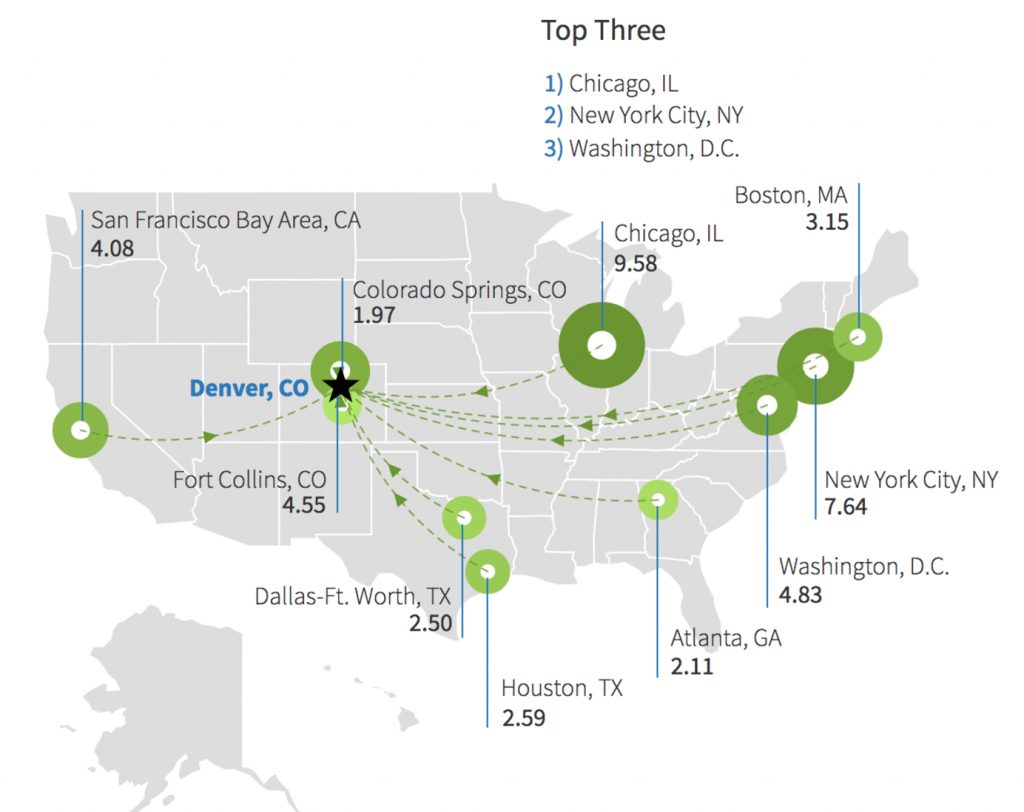
And here’s Seattle:
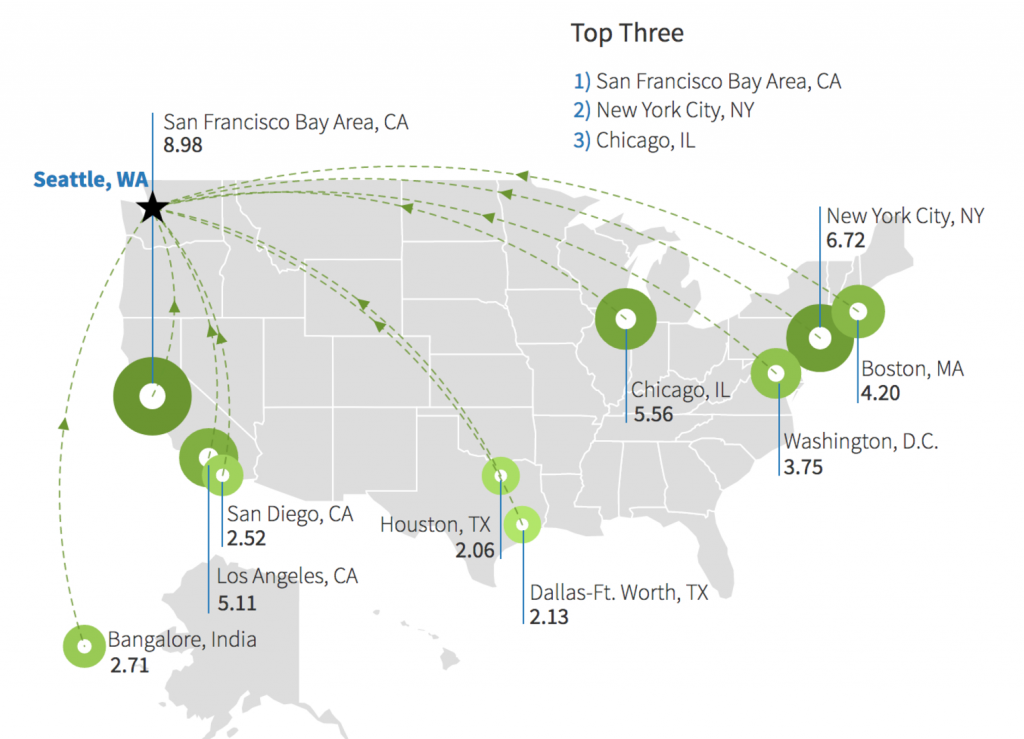
The difference is stark.
Chicago vs. New York vs. San Francisco
Living up to its reputation as the capital of the Midwest, Chicago’s draw is from a tightly focused region.
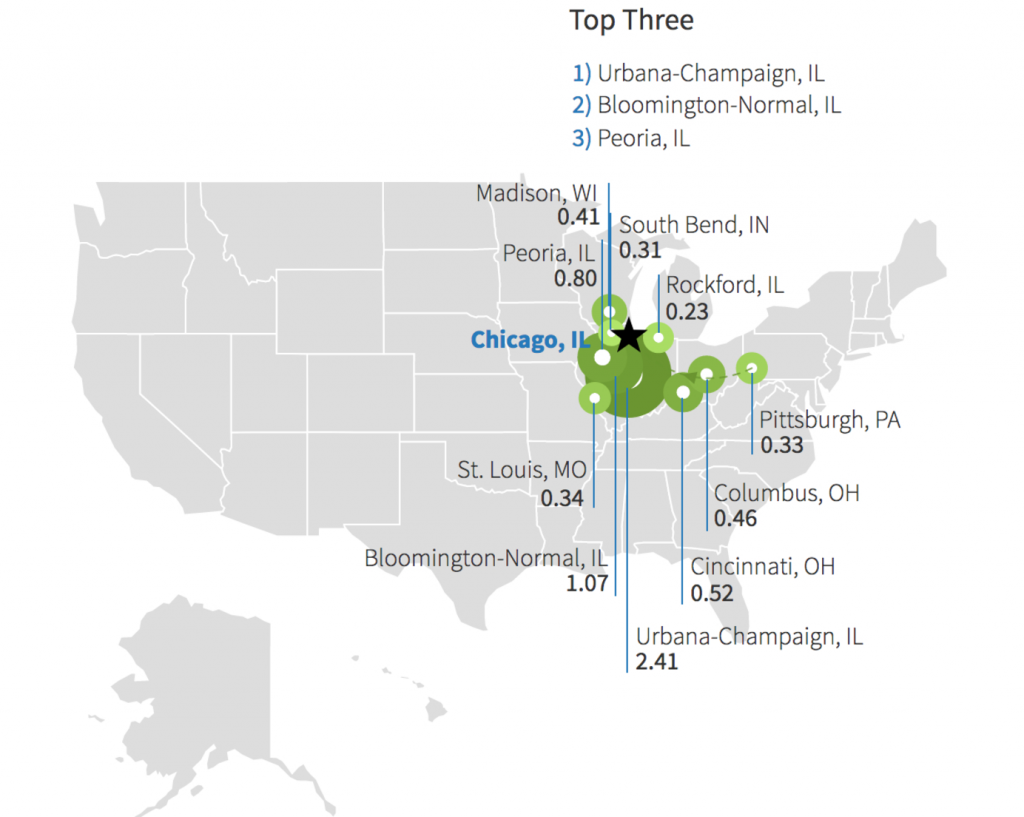
Now, here’s New York:
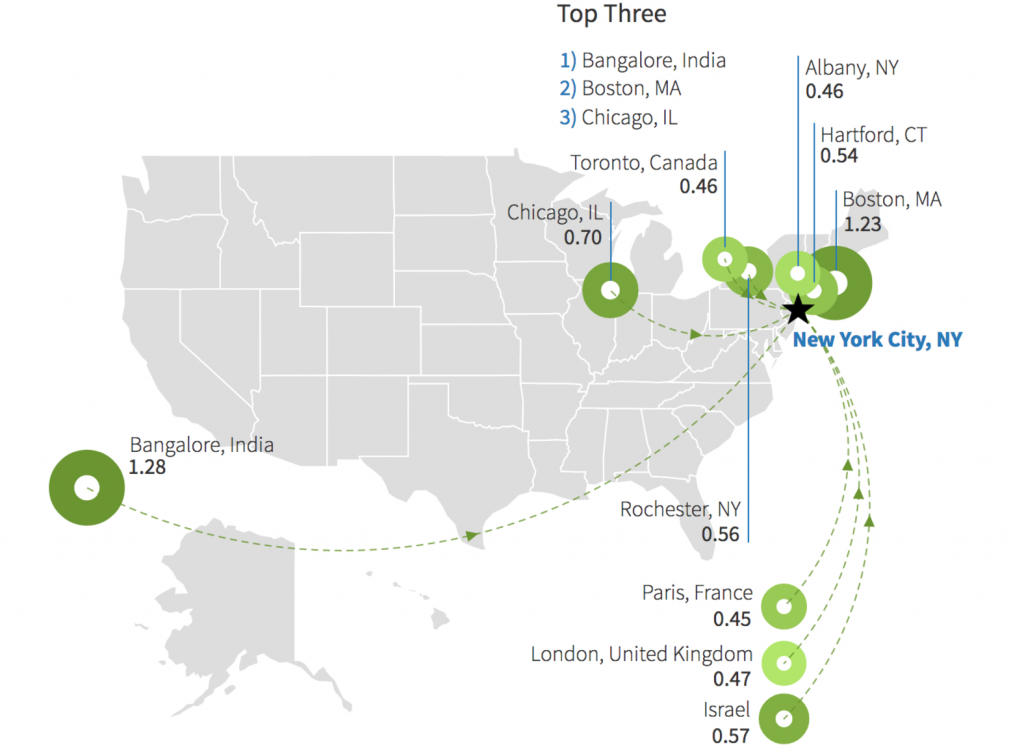
Four of New York’s top ten draws are actually from outside the country. That’s pretty amazing.
And here’s San Francisco.
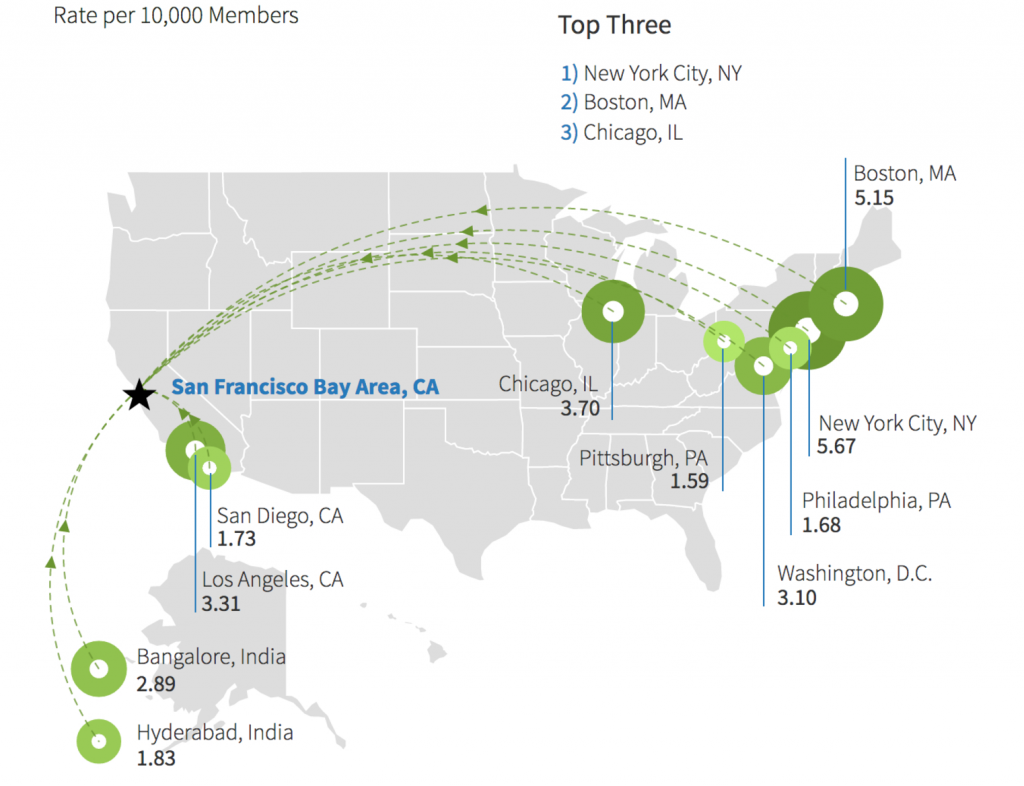
You see the flows in mostly from other major tech hubs and big cities.
Again, a pretty start difference.
Cleveland vs. Nashville
We see the same thing in smaller tier cities. Here’s Cleveland.
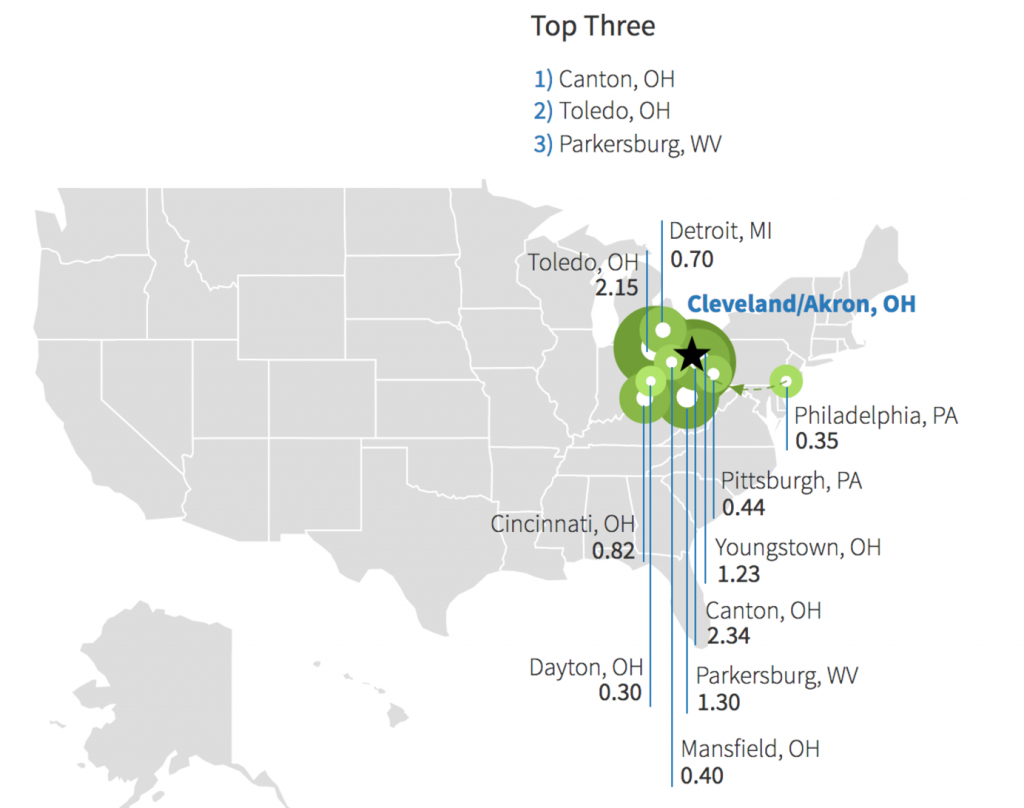
And here’s Nashville.
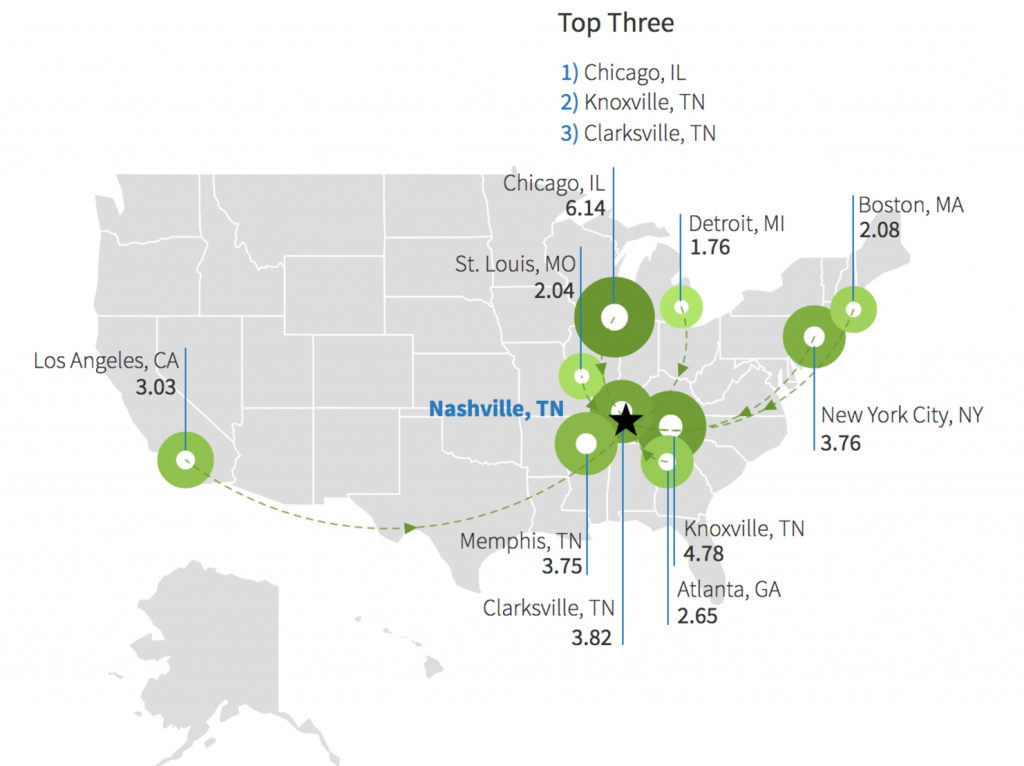
Again, I’d encourage you to spend some time over at LinkedIn. You can tell a lot about these cities and their economies just by their migration maps. You can also instantly see another dimension of the challenge facing Midwestern cities.
This piece originally appeared on Urbanophile.
Aaron M. Renn is a senior fellow at the Manhattan Institute, a contributing editor of City Journal, and an economic development columnist for Governing magazine. He focuses on ways to help America’s cities thrive in an ever more complex, competitive, globalized, and diverse twenty-first century. During Renn’s 15-year career in management and technology consulting, he was a partner at Accenture and held several technology strategy roles and directed multimillion-dollar global technology implementations. He has contributed to The Guardian, Forbes.com, and numerous other publications. Renn holds a B.S. from Indiana University, where he coauthored an early social-networking platform in 1991.












